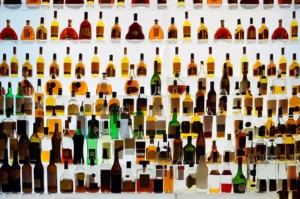
According to the Substance Abuse and Mental Health Services Administration (SAMHSA), approximately 20 million people in the United States over the age of 12 experienced a substance use disorder in 2019. It physiological dependence on alcohol is estimated that substance use disorders cost the United States $420 billion dollars a year. There are several organisations available in England to provide mutual aid for service users and their families.
25.2. Studies considered for review
Founded in the US in the 1930s, AA is based on a ‘12-step’ programme, and the ‘12 traditions’ of AA. The programme includes acceptance that one is powerless over alcohol, acceptance of the role of a higher power and the role of the support of other members. AA is self-financing and the seventh tradition is that AA groups should decline outside contributions.
- Five trials relating to clinical evidence met the eligibility criteria set by the GDG, providing data on 1,312 participants.
- Psychological dependence, or drug craving, is a recent addition to the diagnostic criteria for substance use disorder in DSM-5.
- These symptoms include emotional changes such as irritability, agitation, anxiety, and dysphoria, as well as sleep disturbances, a sense of inability to experience pleasure (i.e., anhedonia), and frequent complaints about “achiness,” which possibly may reflect a reduced threshold for pain sensitivity.
- As has been noted previously, relationships with parents, carers and the children in their care are often damaged by alcohol misuse (Copello et al., 2005).
- Training in problem-solving and decisionmaking skills can improve the clients’ ability to cope more effectively and anticipate the consequences of their actions.
- Again, it’s important to create a timeline of mental health symptoms and alcohol use and to collaborate as needed with mental health specialists for selection of pharmacotherapies and psychosocial interventions.
- Listen to relatives, friends or co-workers when they ask you to examine your drinking habits or to seek help.
Physical and psychological dependence
SOBELL2000 compared couples therapy in the form of direct social support with natural social support. WALITZER2004 investigated BCT with and without alcohol-focused spousal involvement with behavioural self-management. The issue is further complicated by the fact that many of the trials that evaluate the efficacy of these interventions, and that are representative of this population, involved participants with comorbid drug misuse. For each intervention, the costs of psychological treatment and any disease endpoints for a hypothetical cohort of 1000 patients were compared with standard care over a 20-year time horizon, to determine any net healthcare cost savings. All four therapies demonstrated net savings ranging from £274,008 (coping/social skills training) to £80,452 (BSCT) in comparison with standard care. All four interventions resulted in lower costs per additional abstinent person and lower costs per death averted in comparison with standard care.
3.2. Mental health
- If you or someone you know struggles with any of these, seeking professional help is crucial.
- These contributors included both experts external to NIAAA as well as NIAAA staff.
- This discrepancy highlights the obstacles in addiction care, such as that clinicians may be unaware of the signs of substance use or not want to alienate patients by bringing it up, and patients may not want to reveal their substance use, among other hurdles.
- At increasing concentrations alcohol causes sedation leading to sensations of relaxation, then later to slurred speech, unsteadiness, loss of coordination, incontinence, coma and ultimately death through alcohol poisoning, due to the sedation of the vital brain functions on breathing and circulation.
- FALSSTEWART2005 investigated a psychoeducational intervention (used as an attentional control) versus BCT (plus group counselling), brief relationship therapy (plus group counselling) and individually-based TSF (plus group counselling).
- For harmful drinkers and people with mild alcohol dependence who have a regular partner who is willing to participate in treatment, offer behavioural couples therapy.
In developing this guideline the GDG drew on a previous review of psychological interventions for carers that had been undertaken for the NICE guideline on psychosocial interventions for drug misuse (NCCMH, 2008). This was a pragmatic decision because the previous review had drawn on literature covering both drug misuse and alcohol misuse, and searches conducted for this current guideline had failed to find any substantial new evidence for interventions to support family members and carers. Couples therapy was significantly more effective than other active interventions in reducing heavy drinking episodes when assessed up to 12-month follow-up. However, there was no difference between couples therapy and other active interventions post-treatment. The review evidence indicated that behavioural therapies were not as effective as other interventions (in this case, couples-based therapies) in maintaining abstinent/light drinking days up to 12-month follow-up.
13. COUPLES THERAPY

Therefore, the evidence summaries in this chapter describe the psychological therapies for which evidence of sufficient quality (see Chapter 3 for methodological criteria) was available. There are a number of useful studies that add value to the RCT data presented and they are included in this review. For the purpose of this guideline, and to obtain an overview of the available literature, studies that have met other methodological criteria are described in the evidence summaries of the individual therapies. Services for people who are alcohol dependent and harmful drinkers are commonly delivered by statutory and non-statutory providers. The field is undergoing rapid change across different areas of the country due to the impact of the commissioning process. Traditionally, services have been provided by teams where the detoxification and counselling aspects of treatment have been fairly clearly separated.
Information about the databases searched and the inclusion/exclusion criteria used for this section of the guideline can be found in Appendix 16d (further information about the search for health economic evidence can be found in Section 6.21). See Table 47, below, for a summary of the clinical review protocol for the review of behavioural therapies. Behavioural self-control training is also referred to as ‘behavioural self-management training’ and is based on the techniques described by Miller and Munóz (1976). Patients are taught to set limits for drinking and self-monitor drinking episodes, undergo refusal-skills training and training for coping with behaviours in high-risk relapse situations. Behavioural self-control training is focused on a moderation goal rather than abstinence. Despite the steady development of patient-treatment matching studies in relation to alcohol dependence, the outcomes to date indicate that there is no single treatment that is effective for all clients.
- A range of psychological interventions to prevent relapse or promote abstinence in harmful and dependent alcohol misuse were reviewed.
- While opioid withdrawal can be extremely unpleasant, it is not life-threatening (Julien, 2005).
- This effect apparently was specific to alcohol because repeated chronic alcohol exposure and withdrawal experience did not produce alterations in the animals’ consumption of a sugar solution (Becker and Lopez 2004).
- It should aim for abstinence, or a level of drinking predetermined and agreed by the therapist and the service user to be reasonable and safe.
12.3. Studies considered for review

